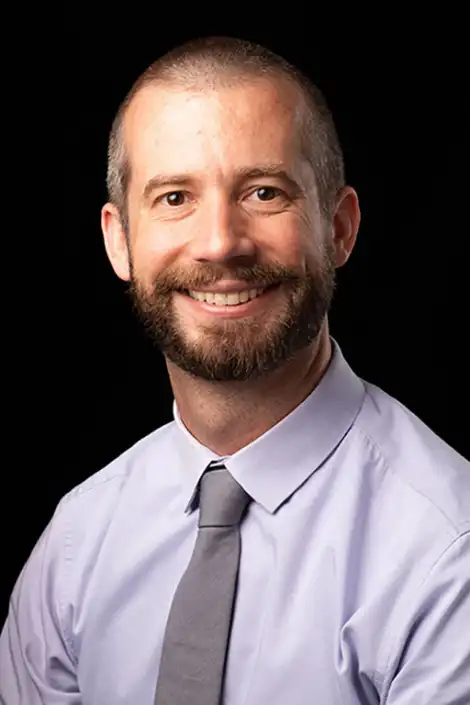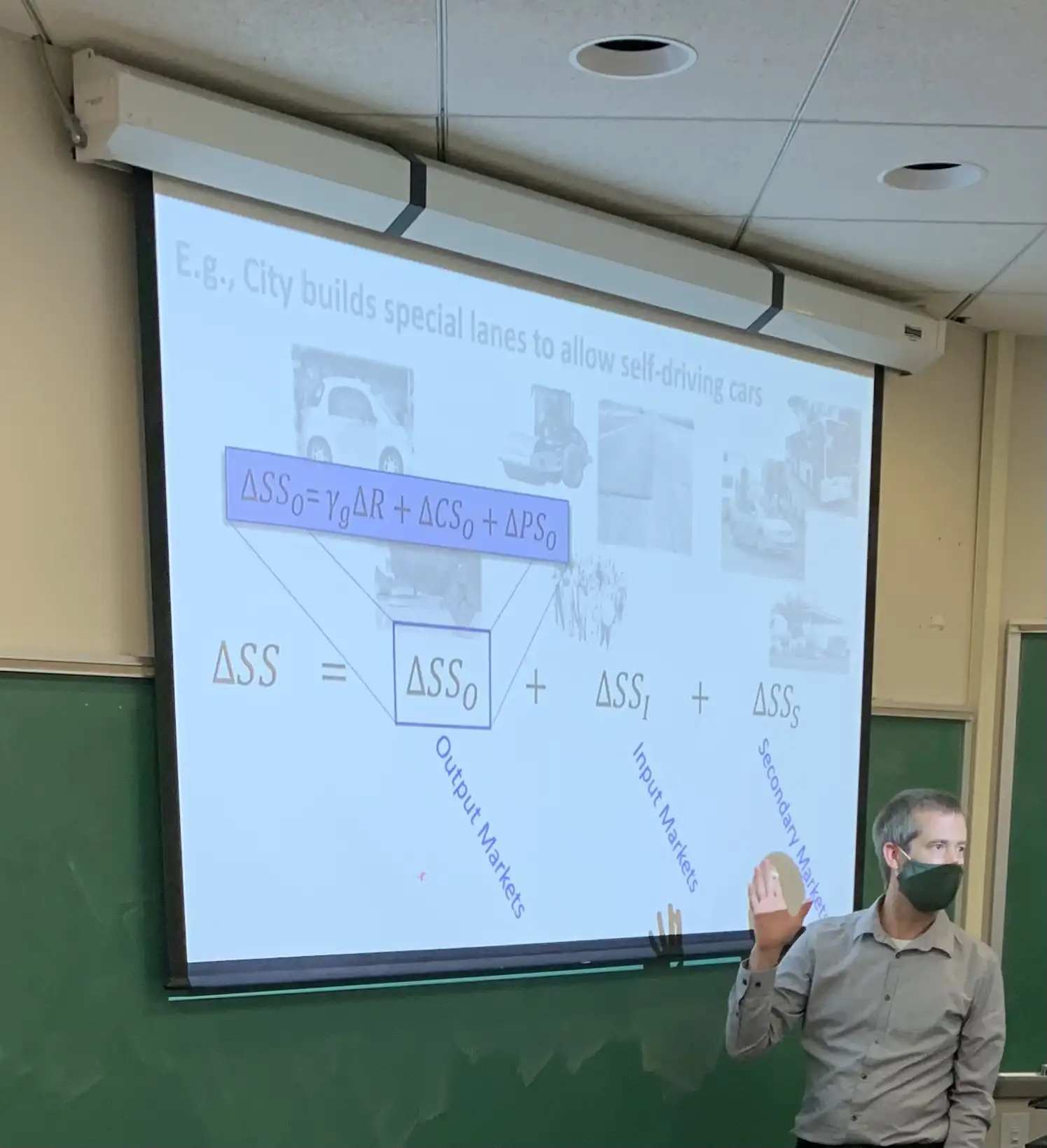Economist shapes how we measure values for the environment
Meet Dennis Guignet
How do we quantify the benefits of environmental protections when it’s so difficult placing a dollar value upon them? This is a question that has been on Dennis Guignet’s mind, and a question that he continually seeks to answer through science and dedicated research.

Dennis Guignet has been researching how to quantify environmental protections to inform policy makers. Improving how policy makers calculate the value of the natural world could help expand its protections. (Photo Credit: Dennis Guignet)
Guignet always loved the environment. He knew that he was destined for a career that put his efforts towards the natural world, and that it was a topic he would be happy being dedicated to. However, during his first year as an undergraduate at Pennsylvania State University, he realized that more potential good could come from focusing on not just the environment, but how society interacts with the environment as a whole. Ultimately, it is policymakers, not just other academics, who can put healthy environmental practices into place.
“I wanted to know why we — humans and society — do the things we do,” he said. “It is only when we understand the ‘why’ that we can figure out ways to change our behavior and help reduce our impact on the environment.”
Guignet soon earned his bachelors of science from Pennsylvania State for environmental and renewable resource economics. He pushed his studies further, achieving his master’s and doctorate degrees from the University of Maryland in agriculture and resource economics.
He later heard about the Evaluation of Economic Benefits from Implementing the Resource Conservation and Recovery Act Program, sponsored by the Environmental Protection Agency (EPA), from a colleague. Guignet wanted to make sure his knowledge and research could reach the people that mattered and knew that he could make a difference by applying.
The EPA Research Participation Programs provide college students, recent graduates, and university faculty opportunities to participate in current environmental research in areas such as air and radiation, water quality, solid waste and emergency response.
Guignet, alongside his mentor David Hockey, have spent the last few years trying to answer the question of how to accurately quantify the benefits of environmental protections. They are collaborating with the Office of Resource Conservation and Recovery, additional researchers at the EPA and other universities. Guignet has helped to estimate the benefits of implementing environmental policy.

Guignet teaching a benefit-cost analysis course. (Photo Credit: John Whitehead)
His fellowship opened the door to multiple projects. The EPA has generally not been able to fully quantify the benefits of preventing and cleaning up pollution under the Resource Conservation and Recovery Act (RCRA), due to a lack of scientific evidence. Guignet is attempting to do just that through his projects. He highlighted two of his projects he feels have the biggest impact.
The first project is to find a cause-and-effect relationship between home values and the environment surrounding the homes. For example, if there was environmental pollution around a home, how much would that home sell for on the market compared to another home in a cleaner area?
Guignet focused on cleanup events at hazardous waste treatment, storage and disposal facilities (TSDFs) to gather the data. For homes where TSDF cleanups took place, he found that there is a 6-7% increase in home value.
“We estimate that the completion of cleanup yields an average lower bound, ex post benefit of $16,000 per household,” Guignet said in an abstract on the study.
His second project tries to quantify the benefits of a clean environment by looking at how mitigation of exposure to hazardous chemicals affects infant health. He and his collaborators collect data on locations where RCRA has required facilities to clean up hazardous chemicals and compare that to where pregnant mothers are living.
Though the study hasn’t released the results, it looked specifically at whether a lower birthweight and whether babies were born prematurely depended on proximity to these facilities and the timing of cleanup. The study also investigated how other social and demographic factors of the children near these polluted sites compared to children of a more general population.
“Before we can estimate a dollar value for improvements in infant health, we must establish if, and by how much, a policy will improve health,” Guignet explained of the study.
These kinds of studies, in which a team evaluates the benefits of a policy versus the potential cost, inform the benefit-cost analysis that is conducted when a regulation is proposed.
Guignet hopes his discoveries will soon be published by an economics or public health journal. A working draft of his study on home values is available online and is currently being peer reviewed. His studies have been presented at several conferences, including the Association of Environmental and Resource Economists’ Annual Summer Conference and in the Center for Health Economics and Policy Studies Seminar Series, among many others.
Guignet will continue his research with the EPA, and along the way gains valuable skills. So far, he says the most important skill he learned is the ability to collect and use large data sets, which sometimes number in the millions. His favorite part of the fellowship is getting to share his ideas with fellow scientists who could use his concepts to inform and develop policy.
When his fellowship ends Guignet will continue his tenure track at Appalachian State University, where he will eagerly work towards a tenured position.
“I definitely recommend the ORISE program,” finished Guignet. “It is a great opportunity for students and recent graduates at all levels. I think the fellowship opportunities available to junior faculty like myself are less well-known, but it has been a truly great experience.“
From growing up loving nature to helping shape the nation’s policies on protecting and improving environmental health, Guignet’s time with the EPA is sure to leave its mark on how we see the world around us.
The EPA Research Participation Program is administered by the Oak Ridge Institute for Science and Education (ORISE). ORISE is managed for the U.S Department of Energy by Oak Ridge Associated Universities (ORAU).

